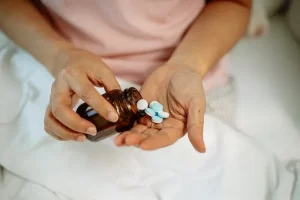 In the journey towards recovery from drug addiction, the initial steps of detoxification and rehabilitation mark significant milestones. However, for individuals seeking sustained sobriety and long-term success, follow-up care plays a pivotal role in maintaining progress and preventing relapse. Understanding the critical importance of follow-up care is essential for individuals, families, and healthcare professionals alike, as it can significantly impact the outcomes of drug recovery efforts.
In the journey towards recovery from drug addiction, the initial steps of detoxification and rehabilitation mark significant milestones. However, for individuals seeking sustained sobriety and long-term success, follow-up care plays a pivotal role in maintaining progress and preventing relapse. Understanding the critical importance of follow-up care is essential for individuals, families, and healthcare professionals alike, as it can significantly impact the outcomes of drug recovery efforts.
First and foremost, follow-up care provides ongoing support and guidance to individuals as they transition from intensive treatment programs back into their daily lives. Completing a rehabilitation program is just the beginning of the recovery journey, and the challenges of maintaining sobriety in the face of triggers and temptations persist long after formal treatment ends. Follow-up care offers a safety net for individuals, offering continued access to resources, counseling, and peer support to help them navigate these challenges with confidence.
Moreover, follow-up care serves as a crucial mechanism for monitoring progress and addressing any emerging issues or concerns. Substance abuse disorders are complex and multifaceted, and recovery is not always a linear process. Relapse, setbacks, and co-occurring mental health issues can arise at any stage of recovery, underscoring the need for ongoing monitoring and intervention. Through regular check-ins and assessments, healthcare providers can identify potential relapse triggers or mental health concerns early on and intervene proactively to prevent setbacks.
Furthermore, follow-up care facilitates the development of coping strategies and relapse prevention techniques tailored to each individual’s unique needs and circumstances. Recovery from addiction is not just about abstaining from drugs; it’s about learning to cope with stress, manage cravings, and navigate challenging situations without turning to substances. Follow-up care offers individuals the opportunity to continue building these essential skills over time, equipping them with the tools they need to maintain sobriety and thrive in recovery.
Additionally, follow-up care fosters accountability and encourages individuals to stay connected to their support networks. Addiction thrives in isolation, and maintaining connections with peers, family members, and support groups is critical for long-term recovery success. Follow-up care provides a structured framework for individuals to stay engaged with their support systems, whether through group therapy sessions, alumni programs, or community-based recovery events. These connections offer a sense of belonging and solidarity, reinforcing individuals’ commitment to their recovery journey.
Lastly, follow-up care helps individuals address any unresolved issues or underlying factors that may contribute to substance abuse. Drug addiction is often intertwined with complex psychological, social, and environmental factors, and addressing these underlying issues is essential for sustainable recovery. Through continued counseling, therapy, and support services, individuals can delve deeper into the root causes of their addiction and develop healthier coping mechanisms to replace maladaptive behaviors.
In conclusion, follow-up care is an integral component of successful drug recovery, providing ongoing support, monitoring, and intervention to individuals as they navigate the challenges of sobriety. By offering continued access to resources, monitoring progress, developing coping strategies, fostering accountability, and addressing underlying issues, follow-up care plays a critical role in promoting lasting recovery and helping individuals rebuild their lives free from the grip of addiction.

 Drug treatment is the first step in the journey to recovery and is critical to preventing relapse. It begins with a medical or therapeutic assessment from a qualified healthcare provider. This assessment will help to identify a person’s level of drug dependence and the health and emotional needs that require treatment. After the assessment, a treatment plan will be created which will include various types of therapy and medication management. This plan will help the individual develop the necessary skills to be successful in recovery and will focus on building resilience, improving self-care and support, and strengthening family support.
Drug treatment is the first step in the journey to recovery and is critical to preventing relapse. It begins with a medical or therapeutic assessment from a qualified healthcare provider. This assessment will help to identify a person’s level of drug dependence and the health and emotional needs that require treatment. After the assessment, a treatment plan will be created which will include various types of therapy and medication management. This plan will help the individual develop the necessary skills to be successful in recovery and will focus on building resilience, improving self-care and support, and strengthening family support.
 The physical health effects that addiction can have on a person’s life are easy to observe. People who are regularly using drugs or alcohol can become malnourished, as they prioritize getting their substance of choice over essential nutrients. They can also suffer from organ damage or liver inflammation caused by the toxins in their chosen substance. Inhaling certain substances, such as crack cocaine, can cause respiratory difficulty and other respiratory problems. If left unaddressed, these physical health effects can cause long-term damage, sometimes leading to permanent disability.
The physical health effects that addiction can have on a person’s life are easy to observe. People who are regularly using drugs or alcohol can become malnourished, as they prioritize getting their substance of choice over essential nutrients. They can also suffer from organ damage or liver inflammation caused by the toxins in their chosen substance. Inhaling certain substances, such as crack cocaine, can cause respiratory difficulty and other respiratory problems. If left unaddressed, these physical health effects can cause long-term damage, sometimes leading to permanent disability.



